Novels Quotes
Most popular novels quotes
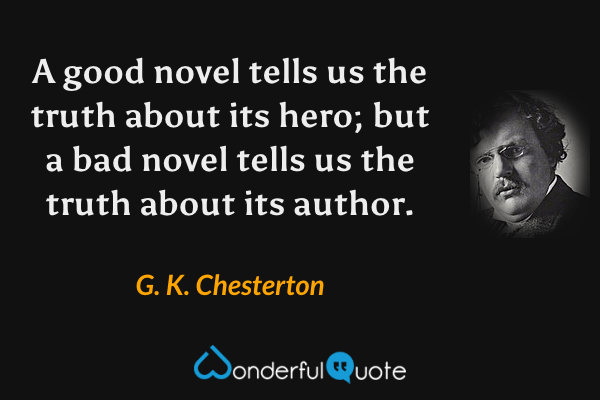
A good novel tells us the truth about its hero; but a bad novel tells us the truth about its author.
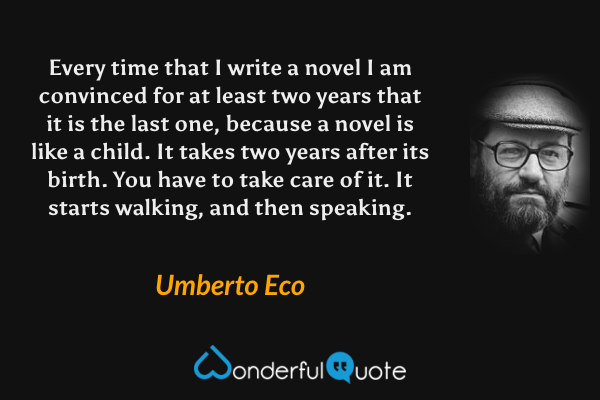
Every time that I write a novel I am convinced for at least two years that it is the last one, because a novel is like a child. It takes two years after its birth. You have to take care of it. It starts walking, and then speaking.

The main characters in a novel must necessarily have some kinship to the author, they come out of his body as a child comes from the womb, then the umbilical cord is cut, and they grow into independence.

The light that radiates from the great novels time can never dim, for human existence is perpetually being forgotten by man and thus the novelists' discoveries, however old they may be, will never cease to astonish.

Lost Illusion is the undisclosed title of every novel.

The traditional novel form continues to enlarge our experience in those very areas where the wide-angle lens and the Cinerama screen tend to narrow it.

Novels, like human beings, usually have their beginnings in the dark.
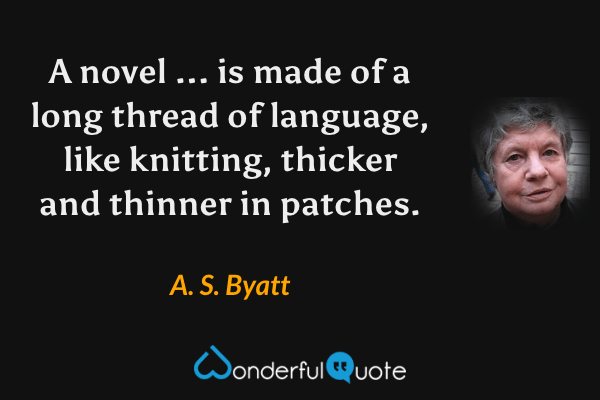
A novel ... is made of a long thread of language, like knitting, thicker and thinner in patches.

A novel is never anything but a philosophy put into images.
A novel should be an experience and convey an emotional truth rather than arguments.
One doesn't "get" an "idea" for a novel. The "idea" more or less "gets" you. It uses you as a kind of culture, the way a pearl uses an oyster.

At a certain point my novels set. They set just as hard as that jam jar. And then I know they are finished.
Most serious novels are machines for producing anxiety. Pick up a classic or a current best seller, and you'll find people in trouble.

It's like driving a car at night: you never see further than your headlights, but you can make the whole trip that way.

A novel is a commodity that fulfills a certain need; people need to buy daydreams like they need to buy ice cream or aspirin or gin. They even need to buy a pinch of intellectual catnip now and then to liven up their thoughts, a few drops of poetry to stimulate their feelings.
A novel, in the end, is a container, a shape which you are trying to pour your story into.

Awake and asleep the novel is with you, dogging your footsteps. Strange formless bits of material float out from the ether about you and attach themselves to the main body of the story as though they had hung suspended in air for years, waiting.
Writing a novel is not merely going on a shopping expedition across the border to an unreal land: it is hours and years spent in the factories, the streets, the cathedrals of the imagination.
A novel represents a compact between the writer and the reader, with the writer providing words out of which the reader creates a pleasurable experience.
Think of the novel as lover: Let's stay home tonight and have a great time; just because you're touched where you want to be touched, it doesn't mean you're cheap; before a book can change you, you have to love it. Or the novelist as cook who prepares, as a gift to the reader, this many-course meal. Not just ice cream, but broccoli rabe as well.

For a true novel there is generally no substitute for slow, slow baking.
The novel cannot submit to authority. It is written against official language, against officialdom, and against whatever fixed form the novel has begun to take—it is always dying, and always being born.
The dead hand of research lies heavy on too many novels.

A novel is an impression, not an argument.
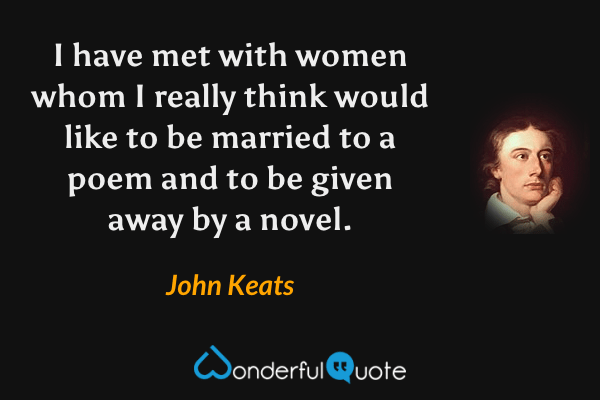
I have met with women whom I really think would like to be married to a poem and to be given away by a novel.
Writing a novel is like making love, but it's also like having a tooth pulled. Pleasure and pain. Sometimes it's like making love while having a tooth pulled.

All great novels, all true novels, are bisexual.

Love of truth, ordinary common truth recognizable to everyone, is the ruling passion of the novel.

The souped-up novels that are being written today, with injections of myth and symbols to heighten or "deepen" the material, are simply evasions and forms of self-flattery.

For both writer and reader, the novel is a lonely, physically inactive affair. Only the imagination races.
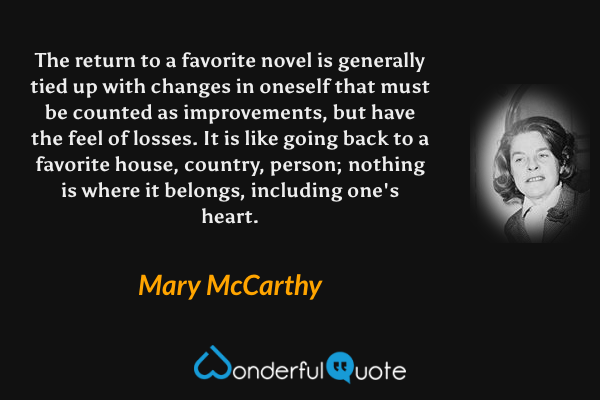
The return to a favorite novel is generally tied up with changes in oneself that must be counted as improvements, but have the feel of losses. It is like going back to a favorite house, country, person; nothing is where it belongs, including one's heart.
A novel...is the smallest number of characters in the least number of situations necessary to precipitate a given crisis.
Writing a poem is like a short love affair, writing a short story like a long love affair, writing a novel like a marriage.

The novel in my imagination travels with me like a small lavender moth making loopy circles around my head. It is a truly gorgeous thing, its unpredictable flight patterns, the amethyst light on its wings.

Starting a novel isn't so different from starting a marriage. The dreams you pin on these people are enormous.
A great novel is a kind of conversion experience. We come away from it changed.
Novel writing is a kind of private pleasure, even if nothing comes of it in worldly terms.
Behind every novel is a greater story of how it came to be published.

Almost all novels are love stories.

A novel is a mirror which passes over a highway. Sometimes it reflects to your eyes the blue of the skies, at others the churned-up mud of the road.

It is the test of a novel writer's art that he conceals his snake-in-the-grass; but the reader may be sure that it is always there.

Novel-writing is a highly skilled and laborious trade. One does not just sit behind a screen jotting down other people's conversation. One has for one's raw material every single thing one has ever seen or heard or felt, and one has to go over that vast, smoldering rubbish-heap of experience, half stifled by fumes and dust, scraping and delving until one finds a few discarded valuables.
If we examine a great novel which attains and keeps a measure of fame, we are aware of the flavor of the writer's personality in that work, as a peach tastes like a peach, caviar like caviar, and onion like an onion.
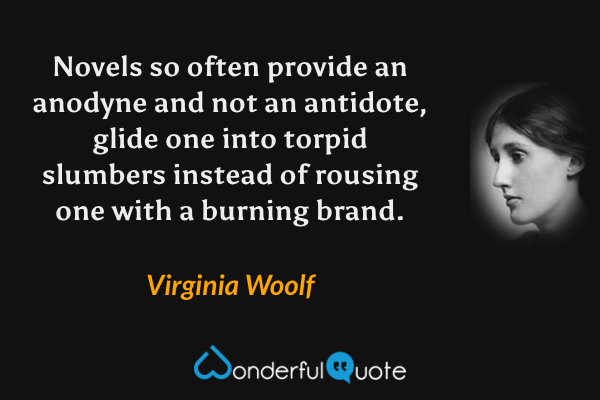
Novels so often provide an anodyne and not an antidote, glide one into torpid slumbers instead of rousing one with a burning brand.
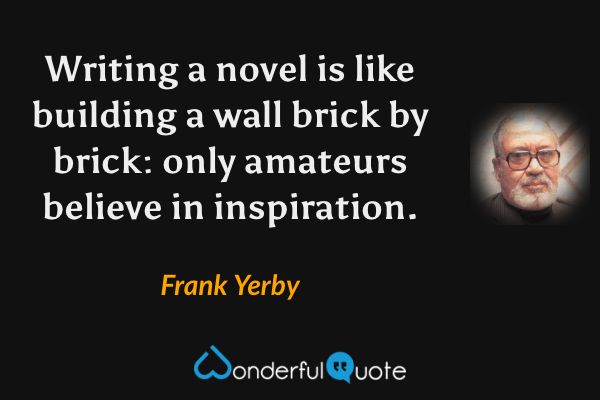
Writing a novel is like building a wall brick by brick: only amateurs believe in inspiration.


